Cleopatra has fascinated people for centuries, thanks to her legend as a cunning seductress, a ruthless queen, and a tragic lover. But how much of what we “know” about her is actually true? When I started digging into her life, I was surprised to find how much of the popular narrative comes from ancient propaganda or outright fabrications. So much of Cleopatra’s real story has been lost under layers of myth and assumptions.
From her looks to her death, misconceptions about Cleopatra seem endless. It’s time to set the record straight about one of history’s most iconic women. Here are 16 common myths about Cleopatra—and the truths behind them.
Cleopatra Was Stunningly Beautiful
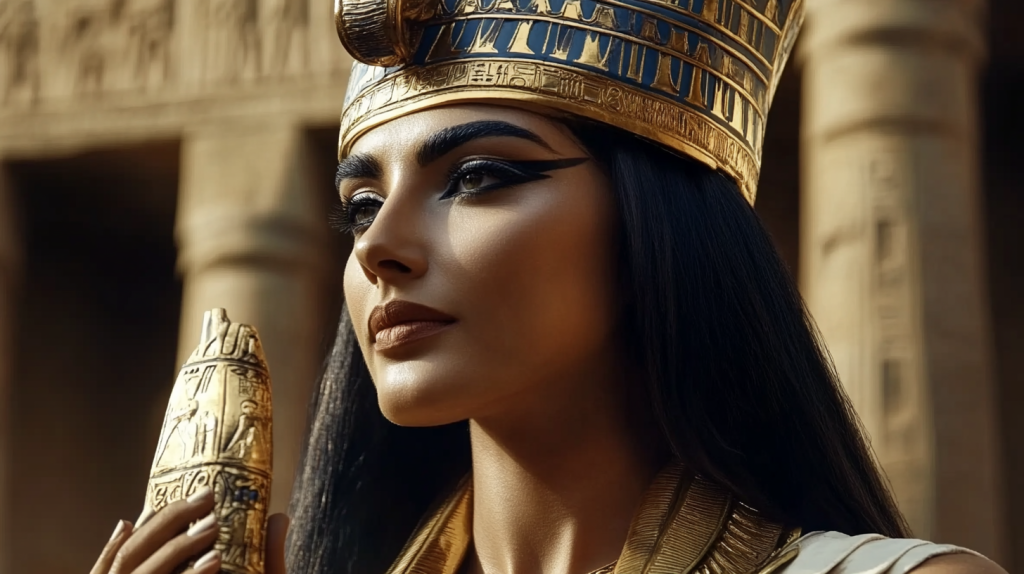
Cleopatra is often portrayed as a great beauty, but ancient texts suggest her allure had more to do with her intellect and charisma than her looks. Coins from her era show her with a strong nose and sharp features, far from the glamorous Hollywood image. Ancient writers like Plutarch emphasized her wit, intelligence, and charm rather than physical beauty, which were likely the real reasons for her magnetic influence.
She Was Egyptian

Although Cleopatra ruled Egypt, she was not ethnically Egyptian. She was of Macedonian Greek descent, a member of the Ptolemaic dynasty that had taken control of Egypt after Alexander the Great’s conquest. Cleopatra was one of the few in her family to embrace Egyptian customs and learn the language, making her a cultural bridge between her Greek lineage and her Egyptian subjects.
Cleopatra Was Julius Caesar’s Wife
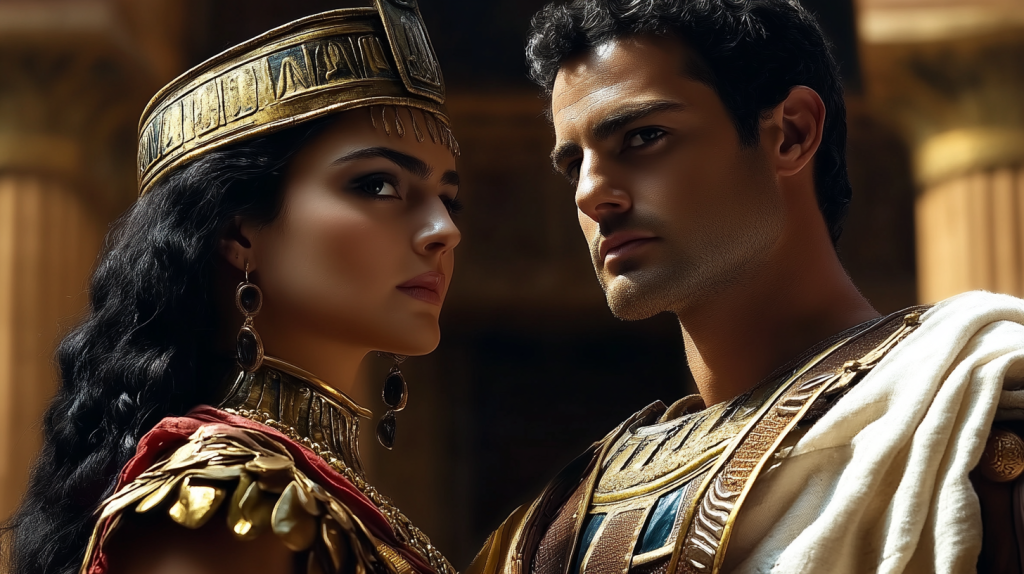
Cleopatra and Julius Caesar had a famous relationship, but they never married. Caesar already had a wife, Calpurnia, back in Rome, and Roman law did not allow a citizen to marry a foreigner. Their relationship was more of a political alliance than a traditional romance, with Cleopatra seeking protection for her throne and Caesar gaining wealth and influence in Egypt.
She Died From an Asp’s Bite

The story of Cleopatra’s suicide by snakebite is one of the most enduring myths about her. However, historians debate whether this is true. Ancient accounts also suggest she may have ingested poison or used a sharp implement, such as a poisoned hairpin. The asp’s bite is a dramatic tale, but it might not reflect reality.
Cleopatra Was a Femme Fatale

Cleopatra’s reputation as a seductress largely comes from Roman propaganda. Roman writers painted her as a dangerous foreign temptress to discredit her and justify Roman conquests. In truth, Cleopatra was a skilled politician who used alliances, not just romance, to secure her power. Her relationships with Caesar and Mark Antony were likely motivated as much by strategy as by passion.
She Lived in Luxurious Excess

Cleopatra is often depicted lounging in opulence, but the Ptolemaic dynasty was actually struggling financially during her reign. While she certainly displayed wealth during diplomatic events, much of it was for political effect. Cleopatra was pragmatic, using her resources strategically to maintain her throne and win alliances.
Cleopatra’s Rule Was a Failure

Far from being a failure, Cleopatra’s reign was marked by savvy governance and bold political moves. She expanded Egypt’s territory and managed to keep the kingdom independent for much of her life despite the looming threat of Roman domination. Her alliances with Caesar and Mark Antony show her ability to navigate a male-dominated, politically dangerous world.
Cleopatra Was Weak Without Her Roman Lovers

Cleopatra’s political skill has often been overshadowed by her relationships with Caesar and Antony, but she was a capable ruler in her own right. Before meeting Caesar, she had already regained her throne after being ousted by her brother. She built a navy, managed Egypt’s vast economy, and even led troops into battle.
Cleopatra Committed Suicide Out of Love for Antony

The story of Cleopatra’s suicide is often romanticized as an act of love, but it was likely a political choice. Faced with the inevitability of capture by Octavian, she chose death to avoid being paraded as a trophy in his triumph. Her decision was likely more about preserving her dignity and legacy than a simple love story.
She Was Universally Hated by Her People
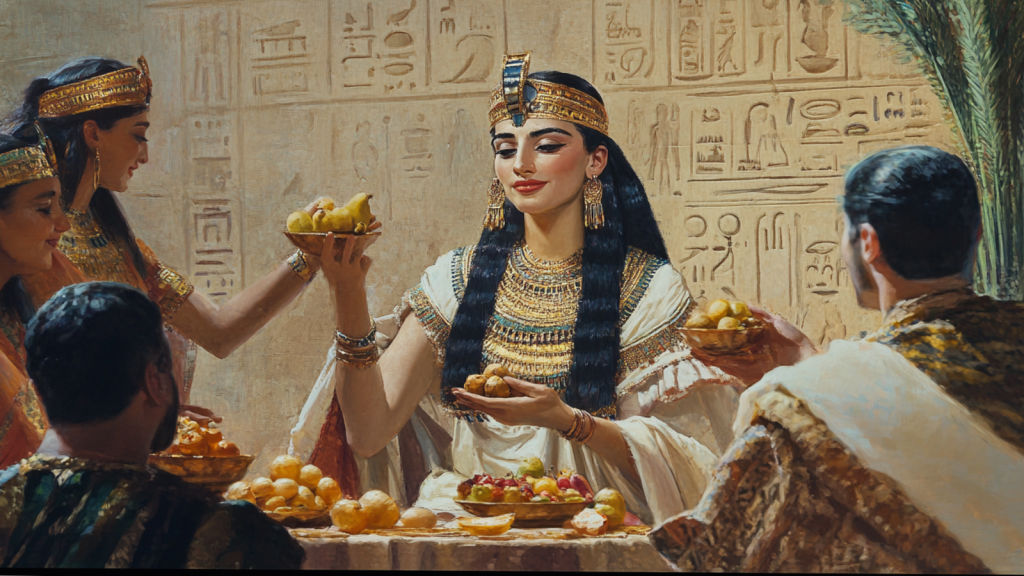
Cleopatra is often depicted as a divisive ruler, but evidence suggests she was respected by many of her subjects. By adopting Egyptian customs and presenting herself as a goddess, she appealed to the Egyptian population. Her multilingual abilities and her dedication to Egypt’s prosperity further solidified her status as a beloved leader to many.
She Was Only Interested in Power

While Cleopatra was certainly ambitious, she also displayed deep cultural and intellectual interests. She was highly educated, fluent in multiple languages, and a patron of the arts and sciences. Her court was a hub of learning and cultural exchange, reflecting her broader vision for Egypt as a center of knowledge and innovation.
Cleopatra Was the Last Pharaoh
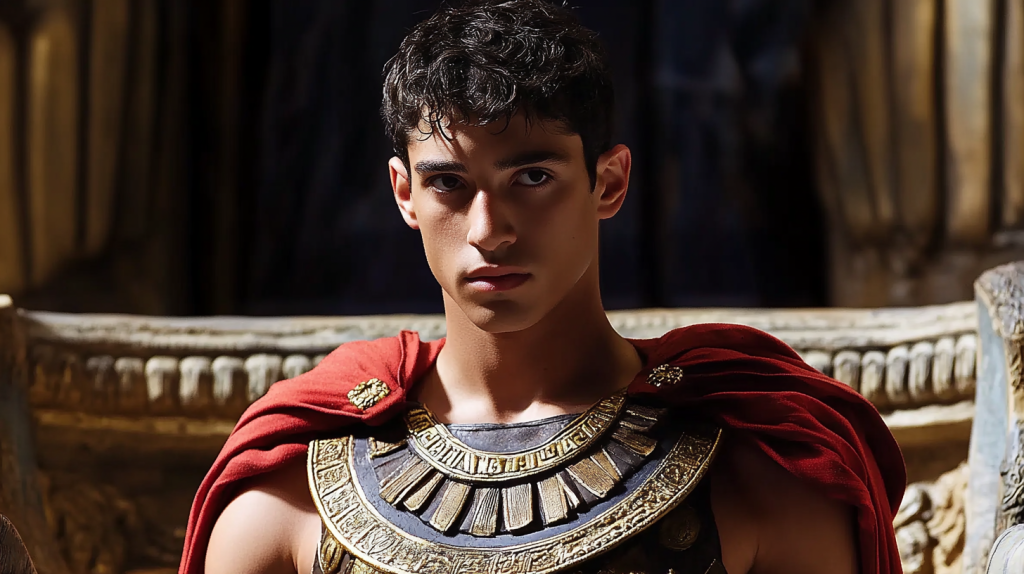
Cleopatra is often referred to as the last pharaoh of Egypt, but technically, her son Caesarion briefly ruled after her death. Caesarion was declared pharaoh by the Egyptians, though his reign was short-lived as Octavian quickly defeated him. Cleopatra’s death marked the end of Egypt’s independence, not the immediate end of pharaonic rule.
Cleopatra’s Image Was Always Negative

While Roman sources painted Cleopatra in a negative light, Egyptian depictions of her were far more favorable. She was portrayed as a divine ruler and protector of Egypt. The contrast in portrayals highlights how her legacy was shaped by the biases of those recording history.
Cleopatra Used Her Beauty to Manipulate Men

The idea that Cleopatra relied solely on her beauty to achieve her goals undermines her actual accomplishments. She was a master of diplomacy and political strategy, often outmaneuvering her opponents with her intelligence and resourcefulness. Her relationships with Caesar and Antony were as much about mutual benefit as they were about personal attraction.
Cleopatra Was Obsessed With Mark Antony

Cleopatra’s relationship with Antony is often portrayed as all-consuming, but it was also a strategic partnership. Together, they formed a political and military alliance against Octavian. Their union was as much about power as it was about love, showing Cleopatra’s ability to balance personal and political ambitions.
Cleopatra’s Death Ended Her Story
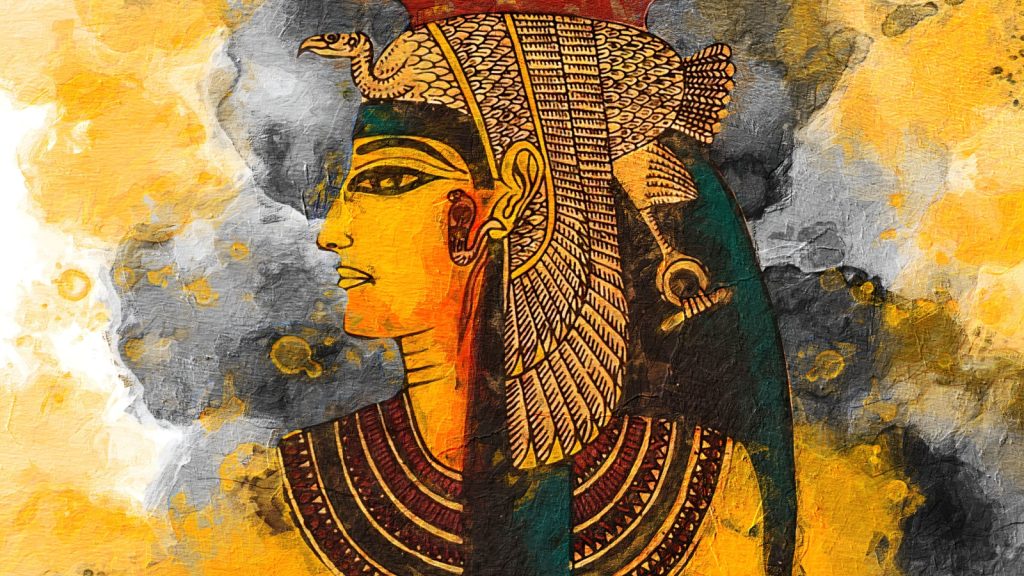
While Cleopatra’s death is a dramatic moment in history, her legacy continued to shape the ancient world. Her life and rule influenced art, literature, and politics for centuries. The myths and truths about Cleopatra have kept her name alive, making her one of the most enduring figures of the ancient world.
Ellen has been obsessed with logic puzzles, jigsaws, and cryptograms since she was a kid. After learning she was taught how to play chess wrong by a family friend (so they could win), she joined her school chess club and the rest is history.

